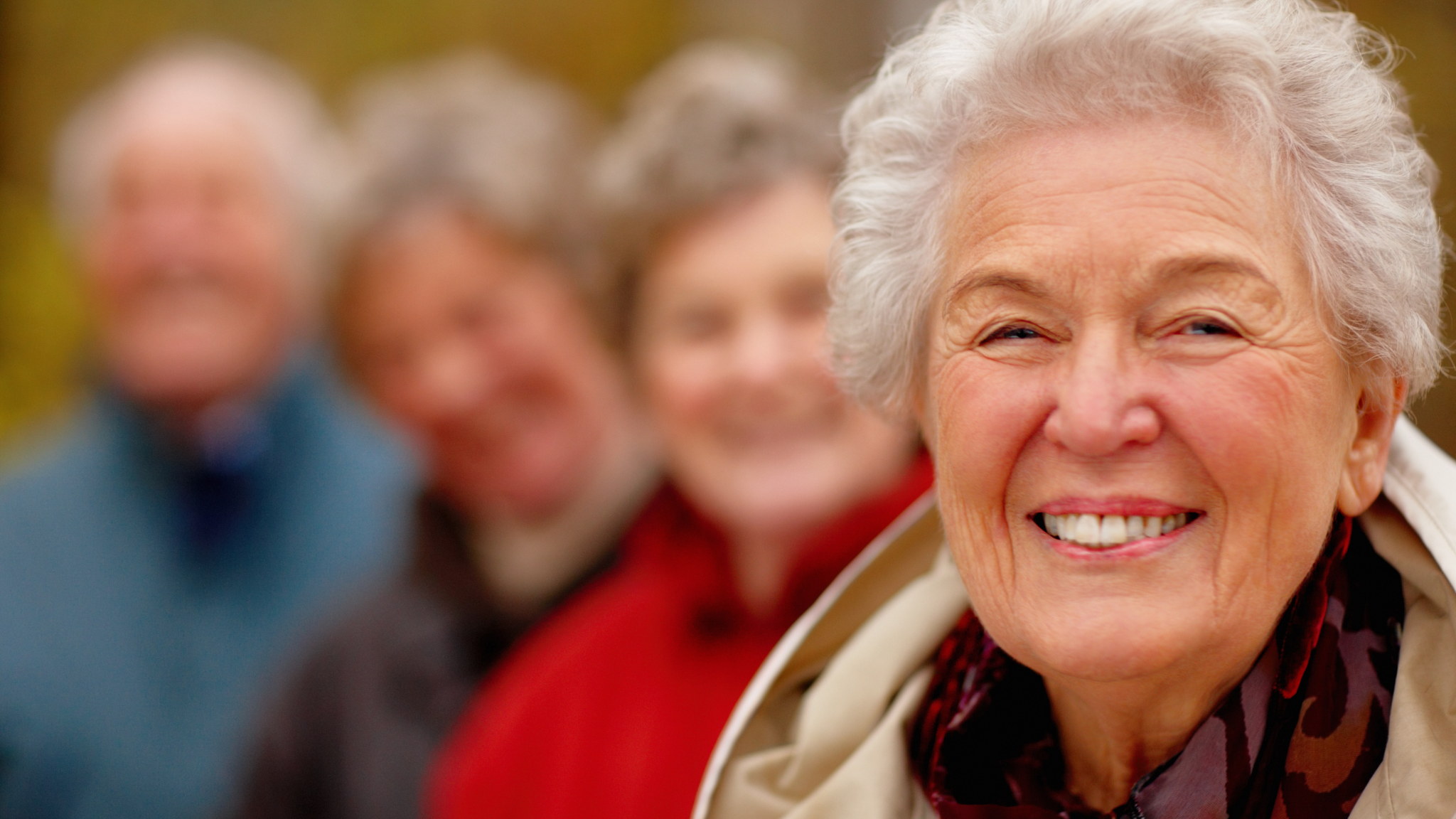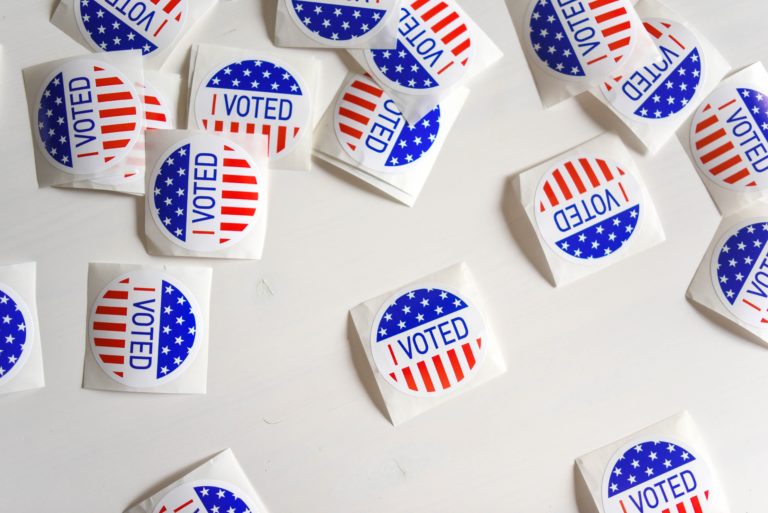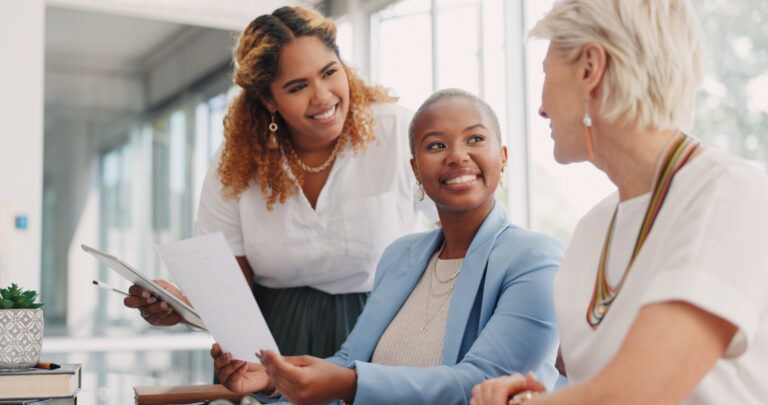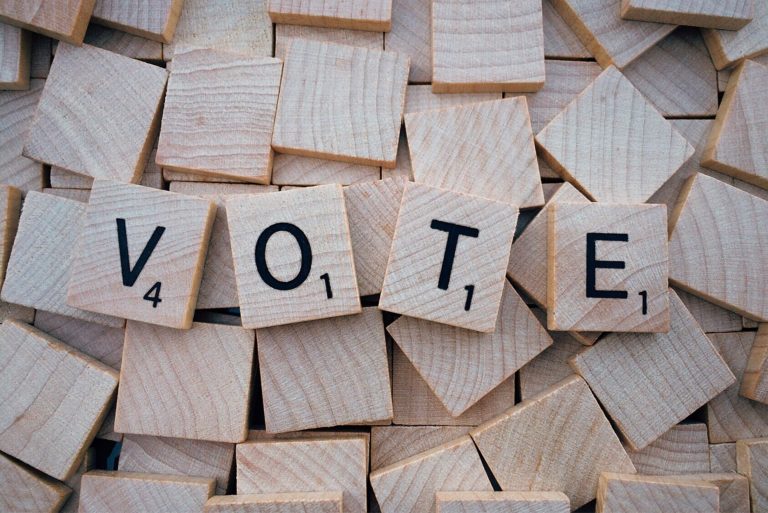On July 19, 1848, over 300 (mostly) women gathered for the Seneca Falls Convention,…
Personal Financial Security Now and Into the Future is Key For Older Women Voters

Back in January, when we released AARP’s first 2024 She’s the Difference national survey focusing on women voters age 50 and over, we said that older women would be the wild card in this election. They are a big group. They show up at the polls. And, because they are fairly equally divided by party, neither side can take them for granted.
The data from our latest poll, conducted by the bipartisan team of Echelon Insight’s Kristen Soltis Anderson and GBAO’s Margie Omero, underscores this point.
Looking at the presidential race, women age 50-plus are the group that has moved the most from January to now. They went from leaning slightly toward President Biden over former President Trump (+3) to favoring Vice President Harris by 12 points. We saw something similar in our 2022 Congressional battleground polling when a big swing among women age 65 and up turned a potential “red wave” into a trickle.
But, this doesn’t necessarily mean that these women are locked in. Candidates still need to speak to them to address their needs and concerns if they want their support.
Financial security is at the top of the list.
- Our survey finds that the majority (62%) of older women say the economy is not working well for them. That isn’t particularly surprising given their day-to-day experience with the rising cost of groceries, the housing crunch and other challenges.
- At the same time, most women age 50 and over say they can afford what they need, even if it isn’t always easy. Most are navigating cost of living concerns with fairly modest adjustments like cutting back on non-essential purchases (71%) and changing where or how they shop for groceries (52%). Far fewer have taken more drastic steps like “unretiring” (8%), taking on an additional job or working more shifts (9%), or foregoing medical care (17%).
Digging deeper, it’s their long-term financial security that is particularly precarious. Feeling financially insecure right now is raising a lot of questions about what may be coming down the pike . . . Will I be able to retire when I want to? Could I find a job if I had to? Will I be able to pay the bills when I retire?
Unfortunately, the answers aren’t pretty.
- 64% feel less financially secure than they expected to be at this stage of life
- 41% don’t have enough savings to cover a $500 emergency expense
- 56% don’t have enough to cover three months of expenses if they lost income
- 44% don’t have EITHER a retirement savings account OR a pension
- 59% of women 50+ who are working aren’t confident they will have enough money to retire when they want to
- 42% of women 50+ who are retired aren’t confident they will be able to cover expenses without going back to work
This short-term and long-term financial stability calculation shows up bright and clear when we asked what policies would help them the most personally.
Protecting Social Security from cuts is the number one thing on the list – ahead of lowering the cost of food, health care, and gas. In fact, 84% of 50+ women, including 78% of 50-64 year old women, most of whom are years away from retirement, said protecting Social Security from cuts would help them A LOT personally.
So, when candidates are reaching out to these women, they need to talk about what they will do to improve their economic security both now and into the future.
You can read the full report from this survey here. And, you can find all our She’s the Difference research about women voters age 50 and over at aarp.org/shesthedifference.
Hear more and join the virtual discussion with the Women & Politics Institute and AARP on Wednesday, October 23rd at 5pm. Nancy LeaMond, Executive Vice President and Chief Advocacy & Engagement Officer at AARP, Kristen Soltis Anderson, Founding Partner at Echelon Insights, and Margie Omero, Principal at the Democratic polling firm GBAO, will discuss AARP’s recently released data from their latest poll with WPI Executive Director Betsy Fischer Martin. The conversation will focus on the important role that women voters aged 50 and up will play in this year’s elections, who they are and the issues they care about. Details and registration here.






